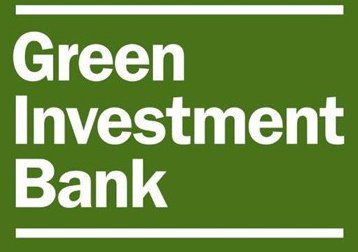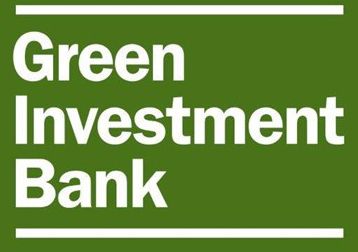UK GREEN INVESTMENT BANK ANNOUNCES 2013-14 RESULTS AND PLANS TO RAISE A NEW £1 BILLION FUND
Published by Gbaf News
Posted on June 25, 2014
5 min readLast updated: January 22, 2026

Published by Gbaf News
Posted on June 25, 2014
5 min readLast updated: January 22, 2026

The UK Green Investment Bank plc (GIB) reports its performance for the financial year to 31st March 2014:
With only 18 months of activity so far, the majority of GIB’s investments (88% by value) remain in construction and, in line with standard accounting practice, a significant proportion of income is deferred to future years. As a consequence and in line with expectations, GIB recorded an operating loss of £5.7m in the current year (see table in notes).
GIB is on track to reach sustained profitability once its current portfolio is built and operating.
UK Green Investment Bank Offshore Wind Fund
 GIB also announces plans to launch a £1 billion fund to acquire equity stakes in operational offshore wind projects in the UK. GIB is seeking a suitable group of strategic, long-term co-investors to participate in this innovative capital raising exercise. The Fund will be managed by a GIB subsidiary which is currently regulated by the Financial Conduct Authority (FCA) and will be seeking permission from the FCA to become a regulated fund manager.
GIB also announces plans to launch a £1 billion fund to acquire equity stakes in operational offshore wind projects in the UK. GIB is seeking a suitable group of strategic, long-term co-investors to participate in this innovative capital raising exercise. The Fund will be managed by a GIB subsidiary which is currently regulated by the Financial Conduct Authority (FCA) and will be seeking permission from the FCA to become a regulated fund manager.
This is an important development for the UK’s offshore wind sector. With 3.6GW of installed capacity, 1.4GW in construction and a number of further projects in the pipeline, the UK sector is set to grow significantly in the coming years. To support that growth, it is vital that developers – typically large utilities – are able to refinance part of their investments in operating assets to reinvest in new developments. This requires a significant broadening of the number of long-term investors in UK offshore wind projects.
Equity investments in operational wind farms can offer a compelling opportunity for investors seeking long-term, inflation-linked returns. These attributes can be well matched to the needs of long-term infrastructure investors such as sovereign wealth funds and pension funds.
In May 2014 GIB received State Aid approval from the European Commission to promote and manage funds and other co-investment structures for mobilising upfront private sector investment into its designated sectors.
This widening of GIB’s activities is a significant strategic development as it will enable GIB to promote and manage funds and all other types of structured co-investments within any of its designated green sectors, allowing it to raise and deploy private sector capital in addition to its current £3.8bn of equity funding from the UK Government.
GIB is targeting a first close on the Fund by the end of the calendar year.
Lord Smith of Kelvin, chair of the Green Investment Bank, said:
“We have emerged from our start-up phase as the most active investor in the UK’s green economy. 2013-14 was a good year for GIB in a difficult market – we backed 18 new projects, more than double our first year, committing an additional £668m of capital.”
Shaun Kingsbury, chief executive, said:
“Our role goes well beyond that of a traditional investor. We are providing a positive demonstration effect by successfully committing capital to profitable, green infrastructure investments. We are making a difference across the UK by taking on the tough projects, de-risking new technologies and lowering the cost of capital for our sectors.
“We want to do more to maximise our green impact. We plan to extend our reach into new markets like community-scale renewables. And we plan to raise new capital for the first time through the creation of a new £1billion fund for operating offshore wind assets.”
Business Secretary Vince Cable said:
“We established the UK Green Investment Bank (GIB) to jump start investments in cleaner, greener technology. These results show the impact they are having with £4.8bn pumped into green energy projects in just 18 months. Headquartered in Edinburgh, the bank’s current investments have supported 3,500 jobs in the UK’s growing green economy and will cut CO2 emissions equivalent to taking over half the cars off London’s roads.
“GIB’s plans for a dedicated offshore wind fund are a real boost for our industrial strategy in a sector where we have a strong competitive advantage compared to other countries. There are great opportunities for British companies and the industry has the potential to create 30,000 jobs for the UK.”
Further details of GIB’s results will be set out in the organisation’s Annual Report, which will be presented at two annual review meetings in London (25 June) and Edinburgh (26 June), where Lord Smith of Kelvin and Shaun Kingsbury will explain the bank’s performance and future strategy to a wide range of stakeholders.
Explore more articles in the Banking category











